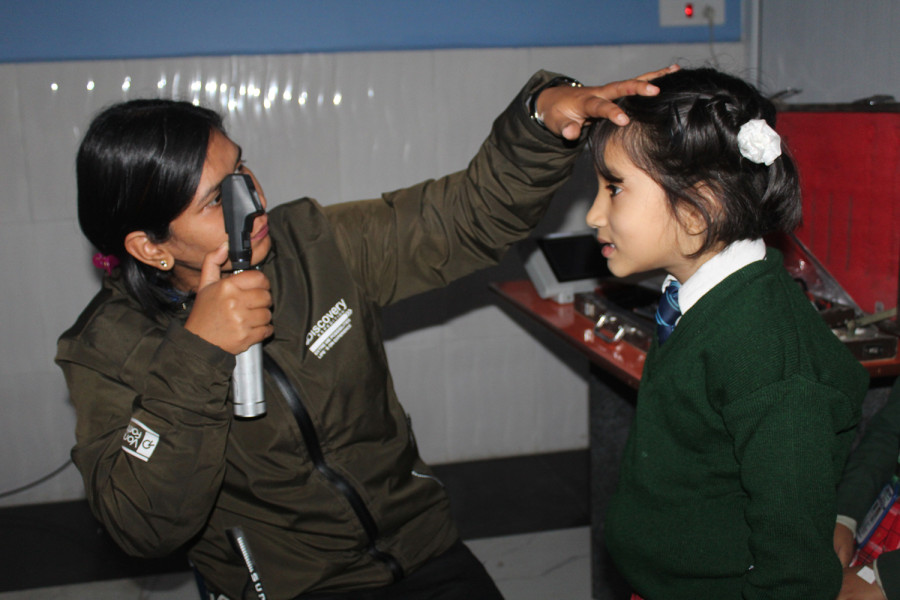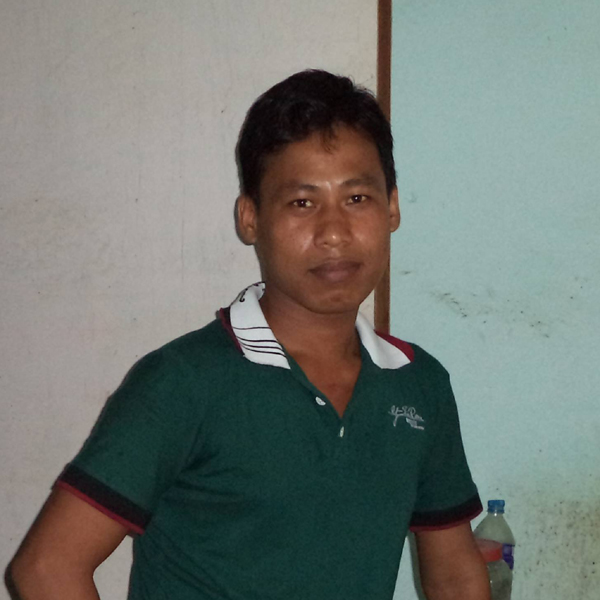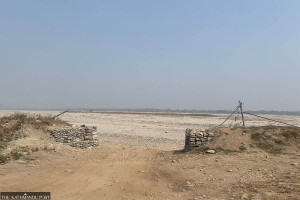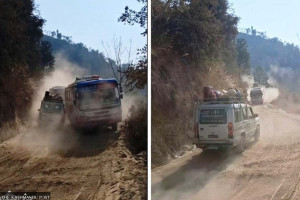Koshi Province
Vision-related problems a concern among Jhapa children
A majority of students in various schools were found suffering from myopia or near-sightedness.
Arjun Rajbanshi
Suhana Bhandari, a sixth grader at Everest Smart Education Academy in Birtamod, is nearsighted and uses minus 1.25 prescription glasses. Even though she wears glasses, she has difficulty identifying words on the board. She sits on the first row in her class for a clearer view of the board.
Aadrishi Sharma, who studies in grade three in the same school, also has vision problems. Sajal Thapa, a teacher of the school, said Sharma started using prescription glasses from grade one.
Just like Bhandari and Sharma, a majority of students (between the ages of 6 to 18 years) in Jhapa are found suffering from myopia or near-sightedness. Some students have also been found suffering from cataracts and lazy eye problems.
Mechi Eye Hospital, a community-based hospital in Birtamod, had conducted a one-day eye check-up campaign in various community and private schools in Jhapa between 19 August 2018 to 31 December 2019. During this period, the hospital tested eyes of 127,675 students (both from 111 community and 261 private schools) free of cost. Yubaraj Bohara, the health education officer of the hospital, said 3,914 students were found suffering from short-sightedness. “We distributed prescription glasses to 3,596 students free of cost,” said Bohara.
The hospital also conducted free surgeries to 26 students suffering from cataract and lazy eye among other serious eye problems. Dr Purusottam Joshi, medical director of the hospital, said that one of the reasons young children are increasingly found suffering from vision-related problems is exposure to long hours of screen time whether that be watching television, using mobile phones and electronic devices. “Parents should be aware of this growing problem,” said Joshi, underlining the importance of eye exams before admitting children to school.
The hospital has also been coordinating with the people representatives in the local units to create awareness about the importance of detecting vision problems in children early on.
Nirmala Bhattarai, the public health inspector of Bhadrapur Municipality, said, “We have been requesting the locals to get their eyes checked once a year,” said Bhattarai. Suraj Rauniyar, an administrative officer of the hospital, said they are also regularly communicating with parents and teachers at various schools to encourage them to send their children for regular eye check-ups.
Indra Singh Rajbanshi, a local in Birtamod, agrees that eye-check ups are as important as other health check-ups. “We were not aware of that in the past but now we have understood the importance of receiving regular eye exams,” said Rajbanshi.




 9.7°C Kathmandu
9.7°C Kathmandu












